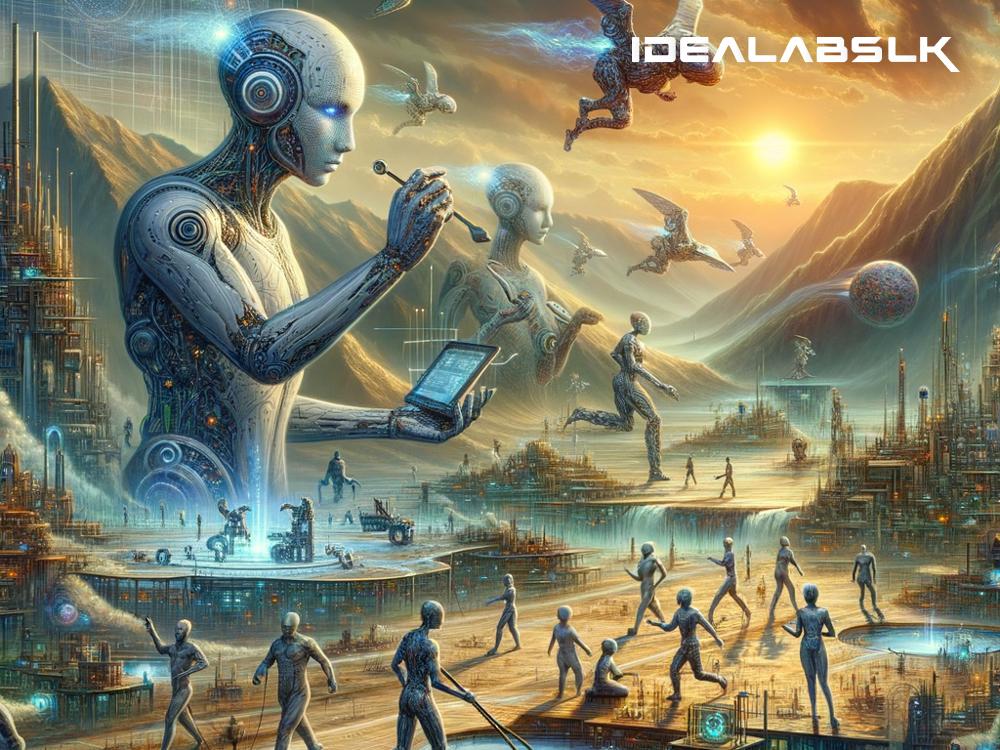The Future of Gaming with AI: Changing How We Create Worlds in Survival and Sandbox Games
As we leap into the future, specifically targeting the year 2025, the gaming industry is witnessing a revolution that's reshaping how we interact with survival and sandbox games. At the heart of this transformation is Artificial Intelligence (AI), a groundbreaking technology that's not just changing the way games are played but also how they are created. Today, let's dive into the intriguing world of AI's role in evolving procedural world-building in these games.
What is Procedural World-Building?
Before we jump into AI's magic, let's understand what we mean by procedural world-building. This is a technique used in game development where the game environment (the world where the game takes place) is generated algorithmically rather than being crafted manually by developers. This means every mountain, forest, river, or dungeon you explore could be unique to your game, offering a personalized experience that's different every time you play.
AI as the Game Changer
Now, where does AI fit into this picture? AI technology can take procedural world-building to the next level. Instead of just randomly generating landscapes, AI can understand and apply complex rules to create worlds that feel alive and immersive. It's like having an intelligent architect that doesn’t just build a world but crafts an ecosystem with its logic, physics, and biology.
In 2025, we're looking at AI systems that can create worlds with history, cultures, and ecosystems that interact in realistic ways. Imagine stepping into a game where the environment changes based on your actions, seasons pass, civilizations evolve, and every element plays a part in a larger, interconnected story. The potential for deep, engaging gameplay in survival and sandbox games becomes limitless.
Personalized Gaming Experiences
One of the most exciting aspects of AI-driven world-building is personalized gaming experiences. With AI, games can tailor environments to suit the player’s style, creating challenges and scenarios that adapt to their skills and decisions. This means that the game grows with you, offering a unique journey that feels incredibly personal and much more rewarding.
Infinite Exploration
The idea of having a game that can continuously generate content is another fascinating aspect. With AI, the world doesn’t have to end where the developer’s imagination stops. The game can keep creating new areas to explore, mysteries to solve, and challenges to overcome. For players who love discovering and exploring, AI-powered procedural world-building promises an infinite playground.
Enhanced Realism and Complexity
AI's ability to simulate complex systems can bring unprecedented realism to game environments. Weather systems, wildlife behavior, and even cultural trends in game societies can be simulated with intricate detail. This not only makes the game world more believable but also adds depth to the gameplay, as players need to adapt to changing environments and navigate through realistically complex societies.
Challenges and the Future
While the prospects are thrilling, integrating AI into procedural world-building is not without its challenges. Ensuring that AI-generated content is fun, engaging, and meaningful is a significant task. Developers will need to find the right balance between AI autonomy and human oversight to create games that are both surprising and enjoyable.
Moreover, there are technical and ethical considerations. As AI becomes more integral to game development, issues like data privacy, player consent, and the ethical treatment of AI-generated characters will become increasingly important.
Looking Ahead
As we look toward the future of gaming in 2025 and beyond, it’s clear that AI will play a pivotal role in revolutionizing how we play, create, and think about games. Procedural world-building, powered by AI, promises to deliver not just games, but living, breathing worlds that offer endless possibilities for exploration, creativity, and personal growth.
In conclusion, the role of AI in evolving procedural world-building in future survival and sandbox games is not just about creating larger or more visually stunning environments. It’s about crafting experiences that are deeply immersive, infinitely variable, and uniquely personal. The journey ahead is filled with potential, and for gamers and developers alike, it’s an exciting time to be part of this evolving landscape.

